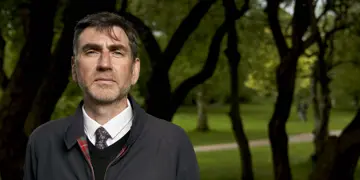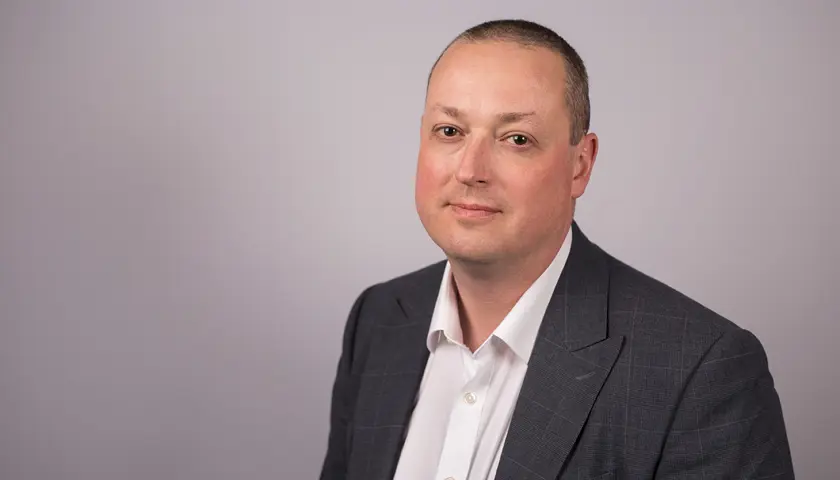
Broken by care
There was a workforce crisis before COVID, but doctors are now facing unacceptable, unsustainable pressures that are driving many to consider leaving the NHS. Peter Blackburn speaks to members of a profession under siege, and considers what the Government needs to do to make things better.
‘I was having a lot of suicidal thoughts. I actually ended up ringing the Samaritans at one point. The impact on my life was huge: I wasn’t able to connect with my kids, I was drinking too much, not spending time with family, not sleeping and constantly ruminating over negative thoughts.’
Seventeen years as a consultant psychiatrist working in acute services – trying to make early interventions in the lives of patients with psychosis – had taken its toll on Simon Mullins.
The early days in the profession had been largely positive. The mid and late-00s seemed to bring a focus on mental health services – new teams were set up and rolled out across the country and the required resources followed.
Lofty demands, targets and standards came from central Government and NHS leaders but for Dr Mullins this was all welcome pressure to succeed while the money to make improvements and meet expectations was in place.
However, a decade of austerity and demographic changes followed and produced soaring demand from patients and families: the disenfranchised, asylum seekers, greater numbers from left behind impoverished and ethnic minority communities and people with overwhelming, and often multiple, complex trauma.
And these are not patients easily healed – these are people who are losing touch with the reality most usually experience.
Patients let down
Austerity politics ensured resources did not follow the demand – and the relentless need. And for South Yorkshire consultant psychiatrist Dr Mullins and many peers across the country, day-to-day life became a ‘battle’ – a constant reminder that you are ‘letting patients down’.
‘If somebody is in a crisis – the early stages of psychosis – there are a lot of risks: they aren’t coping, they hear voices, they have paranoia and their reality is driving them to self-harm or making them very vulnerable.
‘You want to respond quickly but there wouldn’t be a bed to admit them to, you would be waiting an increasingly long time for a Mental Health Act assessment, there is nowhere to admit them, crisis teams are overwhelmed, other support wouldn’t be in place and social care was decimated.
‘You were left with a huge concern for a fellow human being – someone who is very distressed and also quite risky. You fear something bad is going to happen and that you will be blamed somehow.’
There is nowhere to admit them, crisis teams are overwhelmed.
Dr Mullins
That culture of blame extends from worries on the ward every day all the way to the fear of inquests when the – perhaps inevitable – worst has happened and where system pressures may not be taken into account.
‘You feel like you are being left to carry something impossible. And that is really draining emotionally – especially when you are compassionate like most of my colleagues are. You just get full up – you can’t cope with caring any more.
‘Once the demands are completely outstripping the minimum resource you are just in survival mode.’
Job vacancies
Survival mode is no reasonable landscape in which to expect doctors to work – and no reasonable landscape in which to expect patients to get better.
For Dr Mullins it meant taking on more and more stress, even turning to that demand to work harder and feel the stress as a ‘perverse coping mechanism’. But the difficulties were too great.
Vulnerabilities grew and habits became unhealthy and Dr Mullins eventually found himself reaching out to Samaritans, a practitioner health programme, and others in order to find a way out of his pain.
You feel like you are being left to carry something impossible.
Dr Mullins
In January this year two months away from work were required and Dr Mullins was eventually able to find his way back to a new job role working in a less acute part of psychiatry services.
Dr Mullins’ story: a dedicated clinician with great empathy for those he seeks to help, broken by the rigours of his job will be deeply upsetting for many.
Perhaps even more tragic is the fact that he is one of many left in a similar position – of those some are considering, or in the process of leaving, the NHS, some suffer in silence and others may perhaps not yet know how close to burnout they are.
On the limit
BMA research has revealed the scale of the crisis in NHS workforce which has pushed frontline staff such as Dr Mullins to the limit: prior to the COVID-19 pandemic there were at least 8,338 doctor vacancies – 6.3 per cent of all medical posts; since September 2015 the overall number of fully qualified FTE (full-time equivalent) GPs has dropped by 1,307 or 4.4 per cent; the number of GP partners has also dropped by 4,685 or 22 per cent.
As of March 2020 – even before the onset of the pandemic – staff vacancies were 7.8 per cent of all NHS posts, some 88,000 job roles not filled.
Data regarding doctors working in secondary care suggests numbers are increasing – but there is no evidence as to whether it is keeping up with demand and doctors leaders ‘strongly suspect’ it is not.
One thing that is certain is that the strain is clearly showing in the profession. One in five doctors responding to an April BMA survey have said they will leave their career in the NHS altogether after the pandemic and one in two said they are currently suffering from depression, anxiety, stress, burnout, emotional distress or another mental health condition.
Unsustainable
One emergency medicine consultant spoke to The Doctor wanting to explain the strain of working in this environment.
They felt under such pressure from their trust and NHS England that they did not want to have their gender or region of work published, let alone their name.
They said: ‘I’m actively seeking work outside the NHS and have already registered my CV in expression of interest to one company. If the opportunity comes up, I will leave, 100 per cent. It does make me sad. Working in a system where the same standard of care is given to patients whether they live in a palace or a park is brilliant and I love the clinical side of my job, but the current workload, the pressures and the stress are not sustainable.’
Patients are waiting months, they are in pain.
Dr Selvarajah
Among the consultant’s options are leaving clinical practice entirely, or moving to locum work in order to fund the education to do that.
They said: ‘I have a lot of years ahead of me and I am very conscious of the fact that I will not be able to keep this up for another 20 years.’
They added: ‘When I started out emergency medicine was all I wanted to do but it has changed beyond recognition from when I entered the specialty. I can’t spend the rest of my career worrying about the level of risk in the queue of patients on the corridor.
‘Staff are absolutely knackered and absolutely on their knees. People are exhausted from COVID. It has been hard and scary and stressful and now it is out of the frying pan and into the fire. We now have patients queuing in corridors again – those horrific scenes from winter 2019.’
These are pressures felt across the profession - whether in public health, medicine in the community, among hospital doctors or in primary care.
Sluggish recruitment
East London GP Selvaseelan Selvarajah qualified as a GP in 2009 and has seen significant increases in workload, while staffing levels have not increased in that time.
He says: ‘Some of my colleagues are burned out. I have managed to keep myself going by taking on different roles but it has been extremely challenging and I can see many of my colleagues not pushing through with this in the long term. It’s not just the patients, it is the paperwork and the negative press. There is low morale in the profession.’
Dr Selvarajah is a GP trainer and adds that trainees are often choosing to do much fewer hours of clinical work due to the increased demand and stress – often taking on alternative roles like clinical lead work for the rest of their hours.
And paediatrics specialty trainee 6 Emma Coombe, who works in the west of England, says the workforce crisis is having an impact on available services and facilities. She says: ‘In the last three or four years I have come to shifts and been told there is one paediatric intensive care bed in the country and it is in Scotland or something to that effect.’
Dr Coombe adds: ‘On the last night shift I worked we hit a five-hour wait to be seen. It’s very frustrating to see children cared for in an environment that doesn’t suit their needs or their families’ needs.’
And that strain is becoming increasingly evident for the public trying to access healthcare too. The NHS entered 2020 already overstretched with record waits for operations, cancer treatments and GP appointments and with fewer hospital beds and critical care capacity than our European neighbours. This was a health service with a baseline infrastructure that was not prepared for what was the unforeseen global calamity of coronavirus. And the situation has significantly worsened since.
Training suffers
The BMA estimates that, between April 2020 and March 2021, there were 3.37 million fewer elective procedures and 21.4 million fewer outpatient attendances.
Across the NHS doctors are seeing that unmet need flood to services and are being urged to get on with addressing a monumental backlog.
Dr Selvarajah adds: ‘Patients are waiting months, they are in pain and there is only so much that can be done at any one time.
I feel for my colleagues – they have been inundated.’
Away from the public face of the NHS, this workforce crisis has serious implications for staff of the future, as well as those of the present – with a hollowed-out workforce expected to do more and more just to keep service provision running, let alone making time for training or quality improvement.
Dr Coombe says: ‘My training is longer than it needs to be because I am doing things that don’t need to be done by a doctor of my level – tasks that add nothing to training. The rota gaps also mean I have had inadequate access to training in outpatient clinics. It is an accepted fact that consultants now, newer consultants, will need more training and guidance because they haven’t got the experience in their pre CCT training.’
Government action needed
This might already feel like crisis point to so many doctors across the NHS – but without Government intervention this is a situation which is destined to worsen.
Life expectancy has steadily increased since the creation of the NHS in 1948, the population is expected to grow by around 9 per cent over the next 25 years and, most crucially, one in four adults will be aged 65 or over by 2043 – an increase of 3.6 million people or 30 per cent.
As people reach 65-years-old and beyond the average annual cost of their healthcare – and thus the demand they place on services – rapidly increases.
There needs to be consideration of how many beds our country needs.
Emergency care consultant
As such, the BMA is calling for a multi-year settlement for NHS workforce supply that matches patient demand over the next one to five, five to 10 and 10 to 20 years in the 2021 spending review.
Doctors leaders say that settlement should include a resolution to punitive doctor pension taxation issues, comprehensive workforce monitoring, projection and planning work, expansion of medical education and training places, expansion of the medical educator and research workforce, increase in the occupational health medicine consultant workforce and an expansion of the public health consultant workforce.
GP practices in England are delivering more than a million appointments each day, as well as managing the huge backlog of patients who did not receive the care they needed because of the pandemic.
Yet the GP workforce has not grown since 2015 when then health secretary Jeremy Hunt promised an extra 5,000 GPs. The BMA is calling for long-term investment in, and development of, general practice.
We are massively understaffed across the whole NHS.
Emergency care consultant
The association is also urging the NHS’s chief people officer Prerana Issar and the Government to take note ahead of the summer 2021 iteration of the NHS People Plan – with urgent requirement for comprehensive occupational health services for NHS staff, time off to recover from the pandemic response and flexible working options all highlighted as being required in the updated plan.
Doctors leaders say the NHS People Plan should also look to address discrimination and poor working culture, making effective use of the full range of staff skills and experience to maximise education for all and, above all, recruiting enough people, retaining staff already in the NHS and making it easy and worthwhile for others to return.
The emergency medicine consultant – who wishes not to be identified – adds: ‘I think there needs to be consideration of how many beds our country needs and with that comes staff. We are massively understaffed across the whole NHS.
'I quite often hear numbers about the thousands of doctors or nurses we are short – and let me tell you we feel that. We feel those gaps every single shift. There needs to be investment into training and recruitment and most importantly retention. We have a huge problem of staff walking away from the career. People hit a limit and they leave.’
Find out more about how the BMA is trying to improve the way you work
Andrew Molodynski – consultant psychiatrist, Oxford
‘My service gets more than twice as many patients referred as it did back then and we have only had limited extra resources.
'We are all much busier as a result. Work starts earlier and finishes later and I frequently will do catch-up work at weekends.
The thresholds for taking on patients are significantly higher and there are longer waits for all kinds of support and especially for talking treatments – it’s heartbreaking sometimes.’
Jeeves Wijesuriya – GP registrar, London
‘We have a finite workforce, and the teams have felt the physical and emotional toll of the pandemic on staff and patients who have great need.
'As volume of need and patient numbers increase we have a beleaguered workforce trying to manage more without the additional resources or numbers needed.
‘This has a knock-on impact on our practice as you would expect when stretching a workforce thinner and asking them to do more.
'This takes a toll on people personally as well as at work.’
Shobhna Shah – anaesthesiologist, London
‘BAME staff need to feel welcome – that is the first thing.
'If we can allow ourselves to be kinder and more compassionate and provide more wellbeing support that would be better.
'When staff come here they don’t know where to shop, where to eat, where to follow their faith, they need to be guided.
'Mentorship is required. Providing these sorts of support would really help retain staff.’
Brett Metelerkamp – acting consultant in old age psychiatry, Kent
‘Over the last eight years our referral rates have more than doubled.
'The number of referrals in some years has been three times what it was eight years ago but there has been no additional increase in workforce – we have seen no increase in the number of nurses and the number of doctors.’









